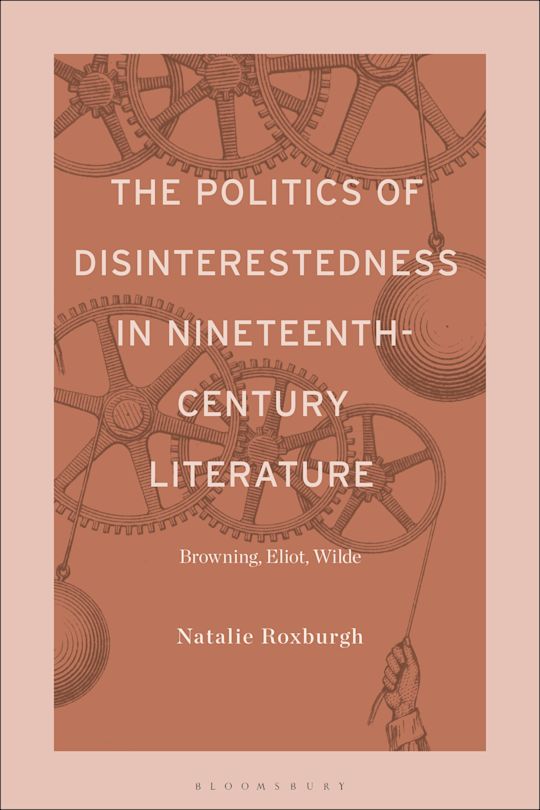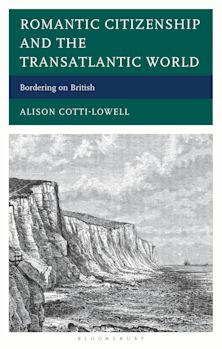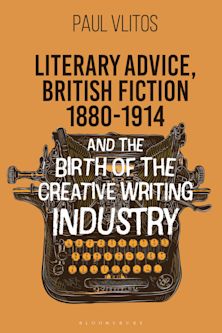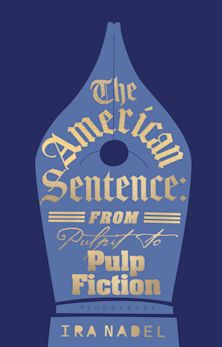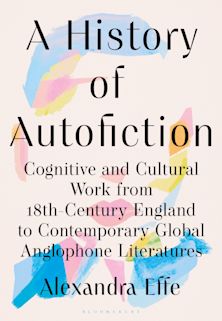- Home
- ACADEMIC
- Literary Studies
- Eighteenth- and Nineteenth-Century Literature
- The Politics of Disinterestedness in Nineteenth-Century Literature
The Politics of Disinterestedness in Nineteenth-Century Literature
Browning, Eliot, Wilde
The Politics of Disinterestedness in Nineteenth-Century Literature
Browning, Eliot, Wilde
You must sign in to add this item to your wishlist. Please sign in or create an account
Description
The Politics of Disinterestedness in Nineteenth-Century Literature historicizes the concept of disinterestedness by examining discourses on political economy during and before the 19th century. It argues that certain literary texts respond to the way all interests are transformed into economic interests during this period. It also shows that this has implications for aesthetics and questions of aesthetic autonomy, in which discourses on disinterestedness are tied up.
Through a New Formalist approach, Natalie Roxburgh provides fresh readings of texts by Robert Browning, George Eliot, and Oscar Wilde, whose respective oeuvres demonstrate an attention to the formal affordances of literary disinterestedness that compete with-and critically assess-other versions. Browning develops a dramatic monologue so that the reader is enticed to re-read his poems; Eliot cultivates the problematic character who must struggle with her desire within a larger play of interests in a way that evolves the realist Condition of England novel; and Wilde experiments with the blending of genres in his critical essays by rendering them as dramatic dialogues that serve as contemplative mechanisms for playing with a multiplicity of interests, which he explores in terms of influence.
Reading these canonical authors through the politics of disinterestedness sheds new light on literary value and, in particular, the formal techniques seen as important by the end of the 19th century, just as liberal democracy emerged in Britain.
Table of Contents
Introduction: From Academic Ideal to Literary-Formal Affordance
Part One: Situating Disinterestedness
1. Disinterestedness and Form: The Mechanisms of Science and Political Economy
2. Disinterestedness and the Politics of Aesthetic Autonomy
Part Two: Representing Disinterestedness
3. Disinterestedness and the Form of Self-Interest: Robert Browning
4. Disinterestedness and the Form of Character: George Eliot
5. Disinterestedness and the Form of Influence: Oscar Wilde
Conclusion: The Problem of Disinterestedness
Works Cited
Index
Product details

| Published | 01 May 2025 |
|---|---|
| Format | Ebook (Epub & Mobi) |
| Edition | 1st |
| Extent | 192 |
| ISBN | 9798765135006 |
| Imprint | Bloomsbury Academic |
| Publisher | Bloomsbury Publishing |
About the contributors
Reviews
-
In this excellent new study, Natalie Roxburgh focuses not primarily on the aesthetic, but rather on the political, economic, formal, and stylistic valences of disinterestedness in 19th-century English literature. Her argument-pursued through the works of Browning, Eliot, Wilde, and many others-creates surprising resonances that become brilliantly illuminating as the argument unfolds.
Carolyn Williams, Distinguished Professor of English, Rutgers University, USA
-
A rigorous and rangy book that is full of new insights into 19th-century literature, culture, and ideas. The writing is demanding and pleasurable in equal measure. It is omnivorous in its engagement with the history of economic, scientific, and philosophical thought without ever losing its desire to show how literature sits at the heart of intellectual life of the 19th century.
Andrew Hodgson, Senior Lecturer in Poetry, Birmingham University, UK

ONLINE RESOURCES
Bloomsbury Collections
This book is available on Bloomsbury Collections where your library has access.









